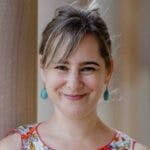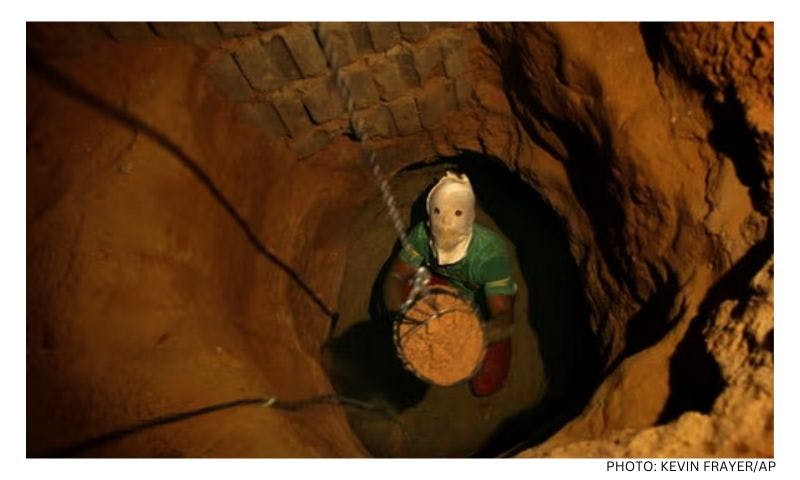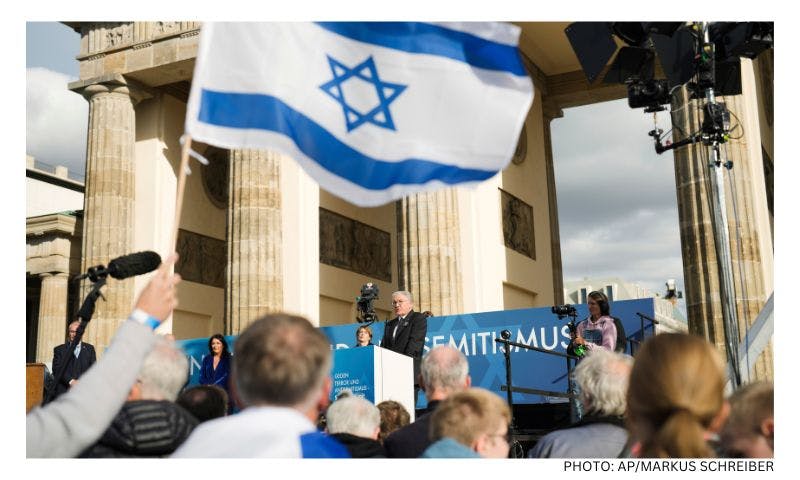Published: 18 September 2020
Last updated: 26 February 2024
EINSTEIN SAID “time and space are modes by which we think and not conditions in which we live”. While this may always be true, our perception of time and distance has been uniquely warped this year by the pandemic. The world seems at once further apart and closer together.
The relativity of time is accentuated: hours spent in lockdown have felt like years; moments of freedom have passed too quickly. Yet the way we, as Jews, mark the yearly calendar and bridge distances with relatives and communities around the world has proven resilient and even innovative.
As we approach the High Holy Days, one thing is clear: the significance of Jewish rituals in our understanding of life and the struggle for solidarity in the face of hardship.
Rosh Hashanah is set in the calendar and will come to pass no matter whether we’re in lockdown, or able to hear the shofar. It is our perception that will determine whether Rosh Hashanah symbolises a period of transition or continuation of the alternating monotony and drama of 2020.
Choosing to signal these moments of Jewishness, from the ceremony of Tashlich, during which my family casts pieces of bread into Brisbane’s Ithaca Creek to apologise for mistakes and sins, to lighting candles and singing Maoz Tzur at Chanukah, gives us a meaning of time that we can grasp, as well as a sense of peoplehood, of something that binds us to Jews all over the globe.
At Pesach this year, we all hoped not so much for “next year in Jerusalem” but for “next year in person”. Yet Zoom Seders surprised us with the ability to bring relatives together across nations and continents, even those who do not normally celebrate as a family.
We may be more physically separated than we can ever remember but we’re connected spiritually by shared experiences and by the effort to stay in touch. The pandemic has simultaneously solidified and evaporated our old concepts of time and distance.
My mother fears her 13-year-old grandson will be shaving by the time she can cross the state border to visit. Yet some borders are more malleable now than they have ever been. During lockdown, I could put on my headphones and listen to the Emanuel Shabbat service broadcast from Sydney.
I rarely attend Shabbat services but this opening up of communal experiences has allowed me to connect with something transcendent, all the while in my kitchen in Brisbane. Regardless of one’s faith or degree of observance, there have been bridges built between communities and our rituals have sustained us.
That effort to retain one’s community identity is also a form of spiritual resistance to hardship. Not only does it give us comfort in times of uncertainty, but it is a way to assert our survival and resilience. It’s one reason why Jews in ghettos and concentration camps during the Holocaust clandestinely celebrated festivals and holy days despite the risks.
In 1944, a group of prisoners in Auschwitz marked Rosh Hashanah by sounding a shofar that had been smuggled in. Our reality is far better. Covid 19 is a threat to all humanity, of course, not only to Jews, and this year we can celebrate freely, albeit only in our own homes and without relatives who would normally be with us. Celebrating the new year should be a source of strength and optimism, providing familiarity in a world of unknowns.
The distortion of our awareness of time is also merging the past with the present, with varying degrees of hope and despair about the future. The distortion has also joined dots between historical and current challenges.
I can’t pretend to understand debates around theoretical physics, but Einstein’s assertion that “the distinction between the past, present and future is only a stubbornly persistent illusion” seems apposite this year.
As Jews, our history is always with us. Each Friday afternoon, my young cousin, Eden, visits her 97-year-old grandfather Sam (Shlomo) at an aged care home in Sydney. The staff bring him down in his wheelchair to listen to her sing Shabbat prayers. Her mother says the distance created by the few metres they are forced to stand apart without being able to hug could well be the space between here and the moon.
The singing bridges the gap to some extent, and my daughter, whose Hebrew name is Chava, after Sam’s mother who was murdered in the Holocaust, has joined via WhatsApp to wish Sam “Shabbat Shalom” and listen to Eden singing. The pandemic has forced Jews further apart and simultaneously closer together.
We are connected to our ancestors when we choose continuity of tradition and culture despite daily threats, and our relationships can be stronger and closer without being able to travel. What does it mean to be “far away”, or for something to happen “soon”?
Distance and proximity, now and later, mean different things to us now than they did at the start of the year. The Jewish calendar, its holidays and rituals can help us process this strangeness, to contain its obscurity and grant us some peace.
As we face the prospect of another holiday to be celebrated over Zoom, or Kol Nidre without being in Shul, an end to all this seems an eternity away. But it’s not. The future is all a matter of perception.
Illustration: Avi Katz




